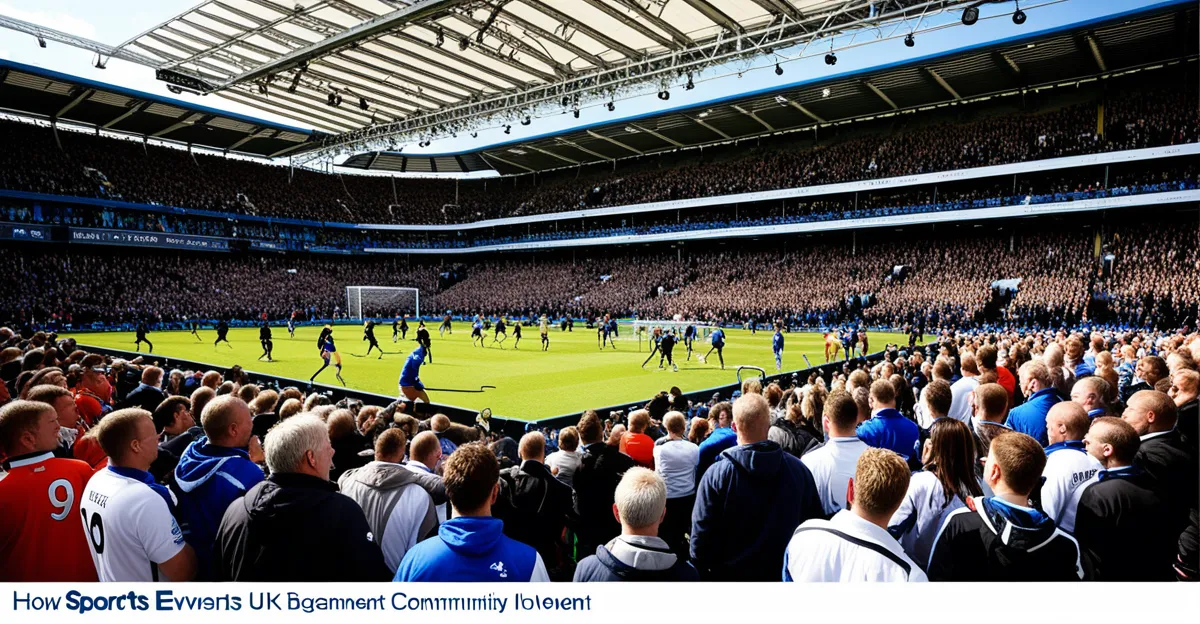How UK Sports Events Foster Community Participation
UK sports events play a crucial role in community participation by implementing targeted community engagement strategies that connect local residents with sports at various levels. These strategies often focus on inclusivity, accessibility, and creating meaningful interactions between the event and the surrounding population.
One key strategy includes hosting open days and community sports festivals alongside main events, which invite people of all ages and abilities to try different sports. This hands-on involvement encourages participation beyond mere spectatorship, turning passive fans into active contributors to the sporting culture. These initiatives often highlight local talent and provide platforms for amateur athletes to showcase their skills.
Have you seen this : How Do UK Sporting Events Contribute to National Identity?
Another effective approach involves partnering with schools, local sports clubs, and community groups to promote active engagement. By integrating sports events with existing local networks, organizers build trust and ensure wider outreach. These collaborations facilitate workshops, coaching clinics, and awareness campaigns that emphasize the benefits of regular physical activity.
Event-led initiatives also include promotional activities, such as discounted or free tickets for community members, especially targeting underrepresented groups. This mechanism reduces barriers to attendance and participation, fostering a sense of belonging and shared excitement. Many UK sports events adopt this practice to transform their audience demographics and enhance community spirit.
Also read : What Factors Make the UK a Powerhouse in Sports Performance?
Furthermore, legacy programs that extend beyond the event itself offer lasting benefits. These can consist of infrastructure improvements like upgraded local sports facilities or ongoing coaching schemes developed as offshoots of the events. Such efforts ensure the enthusiasm generated during a sports event translates into sustained community involvement, promoting healthier lifestyles and social cohesion.
In summary, UK sports events use a blend of interactive community engagement strategies—from inclusive programming and local partnerships to promotional access and legacy initiatives—to foster deep-rooted community participation that resonates long after the final whistle.
Initiatives Promoting Local Involvement
Sports events across the UK create numerous opportunities for volunteering at sports events, which play a vital role in enhancing community participation. These initiatives allow locals to contribute directly, gaining a sense of ownership and pride while supporting event operations. Volunteers often receive training and networking opportunities, fostering skills that benefit both the event and their personal development.
Youth engagement is another cornerstone, with youth sports programs designed to increase accessibility and enthusiasm for physical activity among children and teenagers. UK sports events frequently host sports days and clinics that offer hands-on experiences, promoting healthy habits early and encouraging a lifelong appreciation for sport. These programs not only boost participation but also integrate young people into the broader community fabric.
Additionally, many events partner with charities, embedding UK charity initiatives into their frameworks to maximize social impact. Fundraising activities and awareness campaigns held during these events mobilize community support for important causes. This approach strengthens ties between the event, local residents, and charitable organizations, creating a collaboration that extends beyond sports. Through these combined efforts, UK sports events become powerful platforms for local involvement, fostering deeper engagement and social responsibility.
Community Partnerships and Collaborations
UK sports events thrive on robust community sports partnerships that amplify community participation through collaboration with local organizations. These partnerships enable events to tap into existing networks, enhancing outreach and ensuring that engagement efforts resonate with the specific needs of diverse communities. By working closely with grassroots clubs and community groups, event organizers promote inclusive access to sports, fostering long-term connections beyond a singular occasion.
Effective collaboration often involves co-developing programs such as training workshops, shared facility use, or joint promotional campaigns. This approach not only supports local sports infrastructure but also offers sustainable benefits, encouraging ongoing involvement. For instance, partnerships may facilitate the creation of coaching schemes or youth leagues sponsored by the event, which serve as practical extensions of community engagement strategies.
Successful event collaboration also hinges on building trust and mutual goals. Long-term alliances between sports events and local stakeholders have been shown to increase volunteerism, improve attendance, and boost overall community pride. These relationships often result in legacy initiatives that enhance social cohesion and support underrepresented groups, making British sports events a cornerstone for communal development.
Social and Health Impact of Sporting Events
UK sports events significantly contribute to social impact by fostering social inclusion through sports and building lasting community pride. These events act as catalysts for bringing diverse groups together, creating environments where differences are bridged through shared enthusiasm for sport. By prioritizing diversity and inclusion, many UK sports events implement programs that welcome participants from various cultural, economic, and ability backgrounds, helping to dismantle social barriers.
One central aspect of this social impact is the promotion of health benefits through accessible physical activity opportunities linked directly to major sporting occasions. These initiatives often include community fitness challenges, accessible exercise classes, and awareness campaigns that encourage healthier lifestyles. For example, events may organize pre- and post-match community walks or runs tailored to all ages and abilities, emphasizing wellness beyond the competition itself.
Moreover, these programs extend beyond physical health to address mental well-being. The communal nature of sports gatherings supports positive social interactions, reducing loneliness and enhancing emotional resilience among participants. This holistic approach ties directly into the core community engagement strategies of UK sports events, helping ensure that benefits ripple throughout society long after the event concludes.




